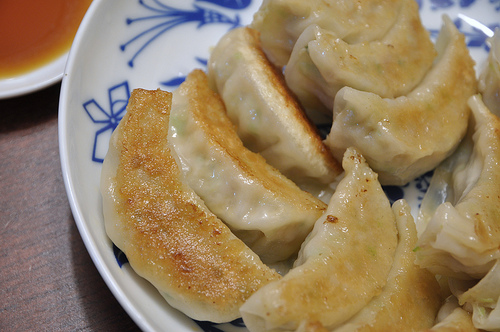In an article on weight regulation I read this:
One subject . . . developed symptoms possible related to EFA [essential fatty acid] deficiency (ie, mild eczema relieved by the addition of fat to the diet).
In other words, the subject — in a metabolic ward at Rockefeller University where everything he ate was supplied by the researchers — developed eczema when fed a zero-fat diet. When fat was added, the eczema disappeared. The researchers understood that not enough fat in your food can cause eczema. This research was done around 1960. The conclusion is supported by dozens of reports from people doing the Shangri-La Diet who said that when they started drinking oil their skin improved. Dry areas disappeared. I found the same thing myself. (And judging by the large fraction of people who have dry skin, a lot of people aren’t eating enough fat.)
The notion that eczema can be cured by eating more fat — perhaps high in omega-3 — could hardly be simpler. Around 1960, at least some doctors understood this (in a situation, I admit, where it was easy to understand). Yet here is how eczema is treated today, according to Bottom Line/Women’s Health (April 2009, p. 9):
Eczema (dry, itchy, swollen skin) usually is treated with topical anti-inflammatory cream twice daily during flare-ups. Patients who applied tacrolimus (Protopic) twice weekly to lesion-prone areas even when no lesions were visible went 142 days between flare-ups, on average . . . versus 15 days for placebo users. Tacrolimus can cause nausea and muscle pain and may increase skin cancer risk — ask your doctor about the pros and cons of preventative eczema treatment.
The information comes from a study done by Sakari Reitamo, a professor of dermatology at University of Helsinki, and others published recently in Allergy.
The surface things — the things that impress many readers — appear good: large sample, big difference between groups, peer-reviewed journal, good university. Yet once you know that eczema can be cured by eating more fat, the whole thing sounds Orwellian.
